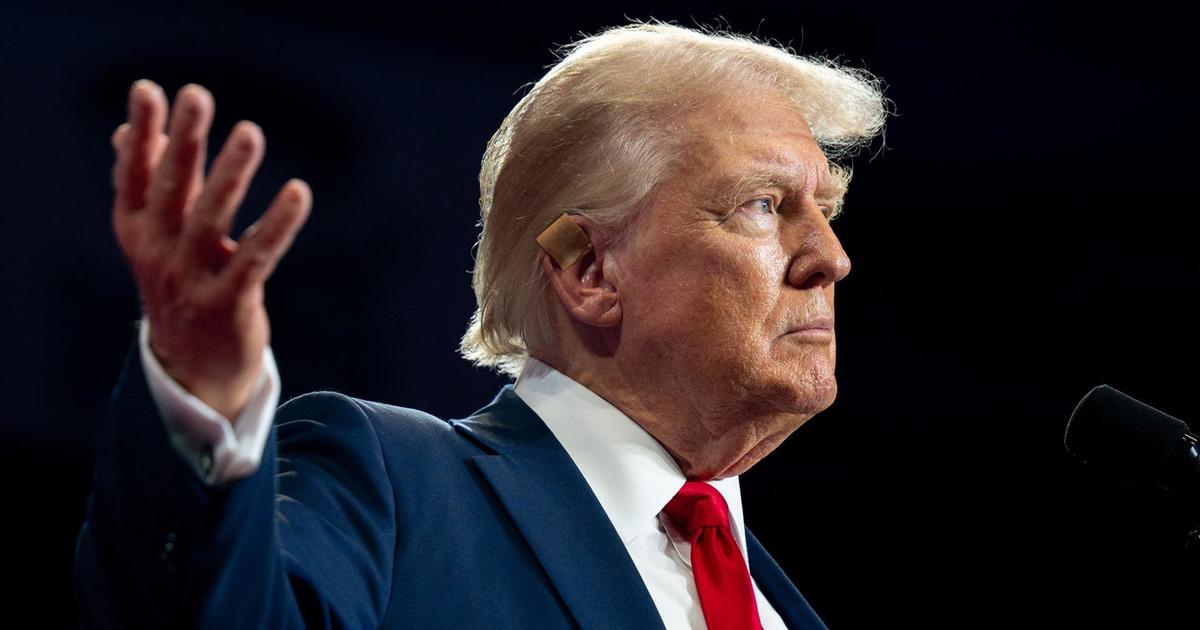Iran, a country known for its complex geopolitical relationships and regional ambitions, has once again found itself at the center of controversy in the international arena. This time, the focus is on its alleged efforts to influence the upcoming U.S. presidential election and undermine the candidacy of former President Donald Trump.
According to U.S. officials, Iran has launched a sophisticated influence campaign aimed at shaping the outcome of the election in a way that aligns with its strategic interests. This campaign, which is said to be a reprisal of a similar effort in the 2020 election cycle, has been attributed to none other than Iranian Supreme Leader Ali Khamenei.
The revelations about Iran’s influence campaign came during a joint election security briefing by officials from the Office of the Director of National Intelligence (ODNI), the FBI, and the Department of Homeland Security. The briefing, held 99 days before Election Day, highlighted Iran’s efforts to sway the election in a direction that would be favorable to its interests.
A senior ODNI official, speaking on the condition of anonymity, stated that Tehran’s motivations for interfering in the election were driven by a desire to avoid outcomes that would escalate tensions with the United States. Iran’s preference, according to the official, is to prevent a candidate from winning the election who would potentially worsen relations between the two countries.
The officials who conducted the briefing refrained from explicitly naming the Trump campaign as the target of Iran’s influence efforts. Instead, they emphasized that Iran’s online activities, which involve a network of internet personas, are primarily focused on sowing chaos and exacerbating societal divisions, including issues such as the conflict in Gaza.
One of the key findings from the briefing was Iran’s alleged backing of protests related to the Gaza conflict in the U.S. This revelation was in line with a statement issued by Director of National Intelligence Avril Haines, who highlighted Iran’s efforts to pose as activists online and support protesters through financial means.
The scale and extent of Iran’s activities in the U.S. remain a matter of concern for U.S. officials, who are closely monitoring the situation. The use of cutouts and other entities to engage American citizens in Iran’s influence operations adds another layer of complexity to the issue.
Interestingly, Iran’s efforts to undermine the Trump campaign appear to be at odds with Russia’s simultaneous attempts to influence the election in Trump’s favor. Despite the two countries’ growing cooperation, especially in light of the conflict in Ukraine, Iran and Russia seem to have divergent objectives when it comes to the U.S. presidential election.
U.S. officials have pointed to Russia’s continued support for Trump’s candidacy, citing past instances where the Kremlin authorized operations to denigrate Trump’s opponents and sow discord among Americans. The close alignment between Putin’s views and Russia’s actions underscores the strategic calculus behind Moscow’s interference in U.S. elections.
In contrast to Russia and Iran, China has adopted a more cautious approach to meddling in the U.S. presidential race. While Chinese actors possess the capability to conduct influence campaigns, they are wary of damaging the fragile bilateral relationship with the U.S. Instead, Chinese entities may focus on targeting down-ballot races to achieve their objectives.
The use of commercial marketing and public relations firms by Russia and China to conceal their involvement in influence operations poses a challenge for U.S. authorities. These firms serve as intermediaries that enable foreign actors to disseminate propaganda and manipulate narratives without direct attribution.
As the election season unfolds, U.S. officials remain vigilant in monitoring foreign interference efforts and safeguarding the integrity of the electoral process. The interplay of geopolitical rivalries, strategic interests, and technological capabilities underscores the complex dynamics at play in the realm of international influence campaigns.
Despite the challenges posed by foreign interference, the U.S. government is determined to uphold the principles of democracy and ensure that the will of the American people is not compromised by external actors seeking to manipulate the electoral outcome. By remaining vigilant and proactive in countering foreign influence, the U.S. aims to preserve the integrity of its democratic institutions and protect the sanctity of the electoral process.









